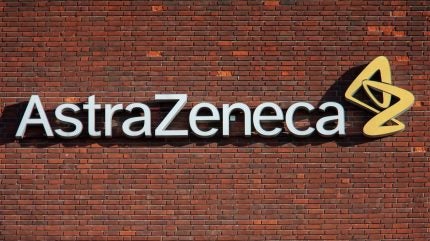
The UK Medicines and Healthcare Products Regulatory Agency (MHRA) has approved AstraZeneca’s Trixeo Aerosphere (budesonide/glycopyrronium/formoterol fumarate or BGF) inhaler for use with a propellant with near-zero Global Warming Potential (GWP), to treat adults with chronic obstructive pulmonary disease (COPD).
This step marks the first time a medicine delivered by a pressurised metered-dose inhaler (pMDI) utilises a propellant with a 99.9% lower GWP compared to currently used propellants.

Discover B2B Marketing That Performs
Combine business intelligence and editorial excellence to reach engaged professionals across 36 leading media platforms.
The approval was based on the propellant clinical development programme outcomes, which confirmed bioequivalence between Trixeo with the new propellant, HFO-1234ze(E), and the existing propellant, HFA-134a.
Trixeo’s tolerability and safety profile were found to be consistent with its known characteristics.
Trixeo, known as Breztri Aerosphere in the US, China, and Japan, is a fixed-dose triple-combination therapy for COPD.
The therapy combines a long-acting β2 agonist (LABA), a long-acting muscarinic antagonist (LAMA), and an inhaled corticosteroid (ICS), delivered through the Aerosphere pMDI.

US Tariffs are shifting - will you react or anticipate?
Don’t let policy changes catch you off guard. Stay proactive with real-time data and expert analysis.
By GlobalDataAstraZeneca plans to transition its pMDI portfolio to the near-zero GWP propellant by 2030, aligning with its Ambition Zero Carbon strategy.
The transition of Trixeo Aerosphere in the UK is set to begin in the coming months. Regulatory applications for Trixeo/Breztri Aerosphere with the next-generation propellant are also under review in China, Europe, and other nations.
AstraZeneca biopharmaceuticals business unit executive vice-president Ruud Dobber said: “The UK approval of Trixeo Aerosphere with the next-generation propellant is an industry first and a major milestone in AstraZeneca’s commitment to transition our pMDI portfolio to the propellant with near-zero GWP.
“Starting with Trixeo, we are addressing the needs of both patients and the environment in devastating diseases like COPD, which affects hundreds of millions of people and is a leading cause of death globally.”
Honeywell-developed medical-grade HFO-1234ze(E) is pivotal for decreasing the climate impact of pMDI medicines.
In 2022, AstraZeneca announced a partnership with Honeywell to develop respiratory inhaled medicines with the new propellant.
As part of its Ambition Zero Carbon strategy, AstraZeneca is progressing towards net zero emissions, targeting a 98% reduction in greenhouse gas emissions from its operations by 2026, from a 2015 baseline.




